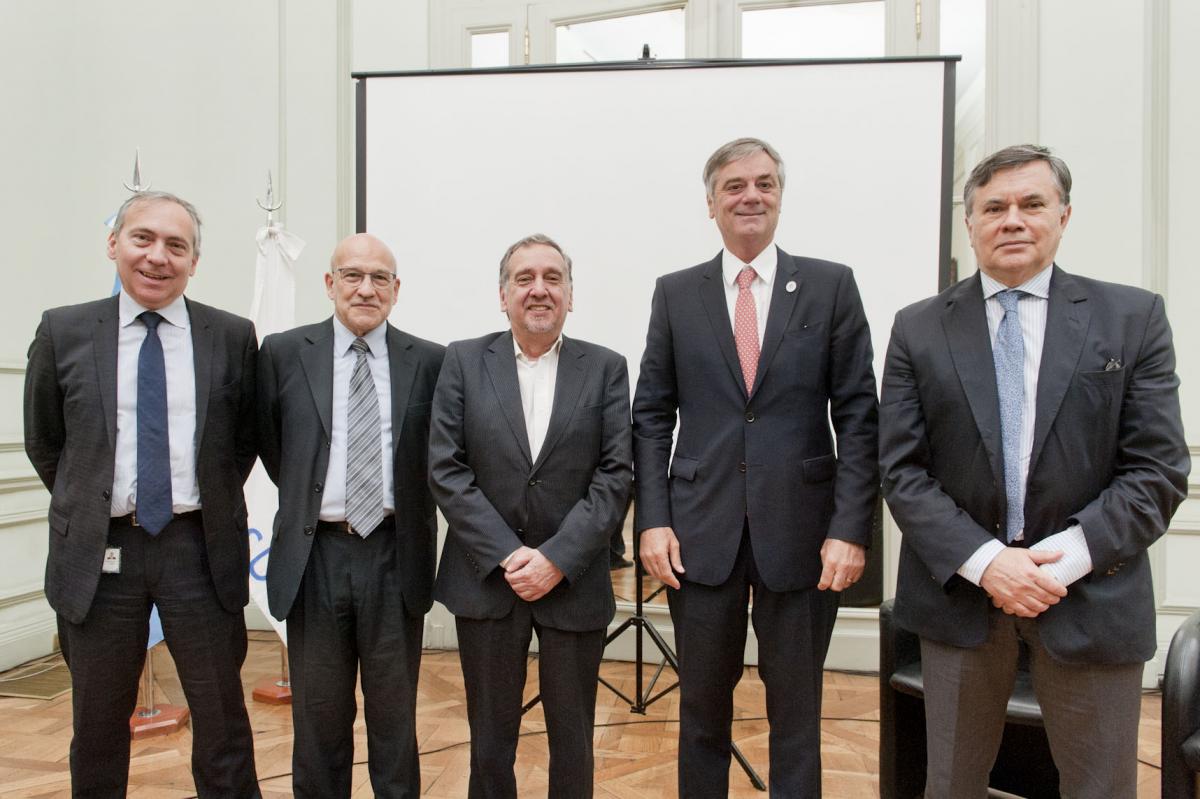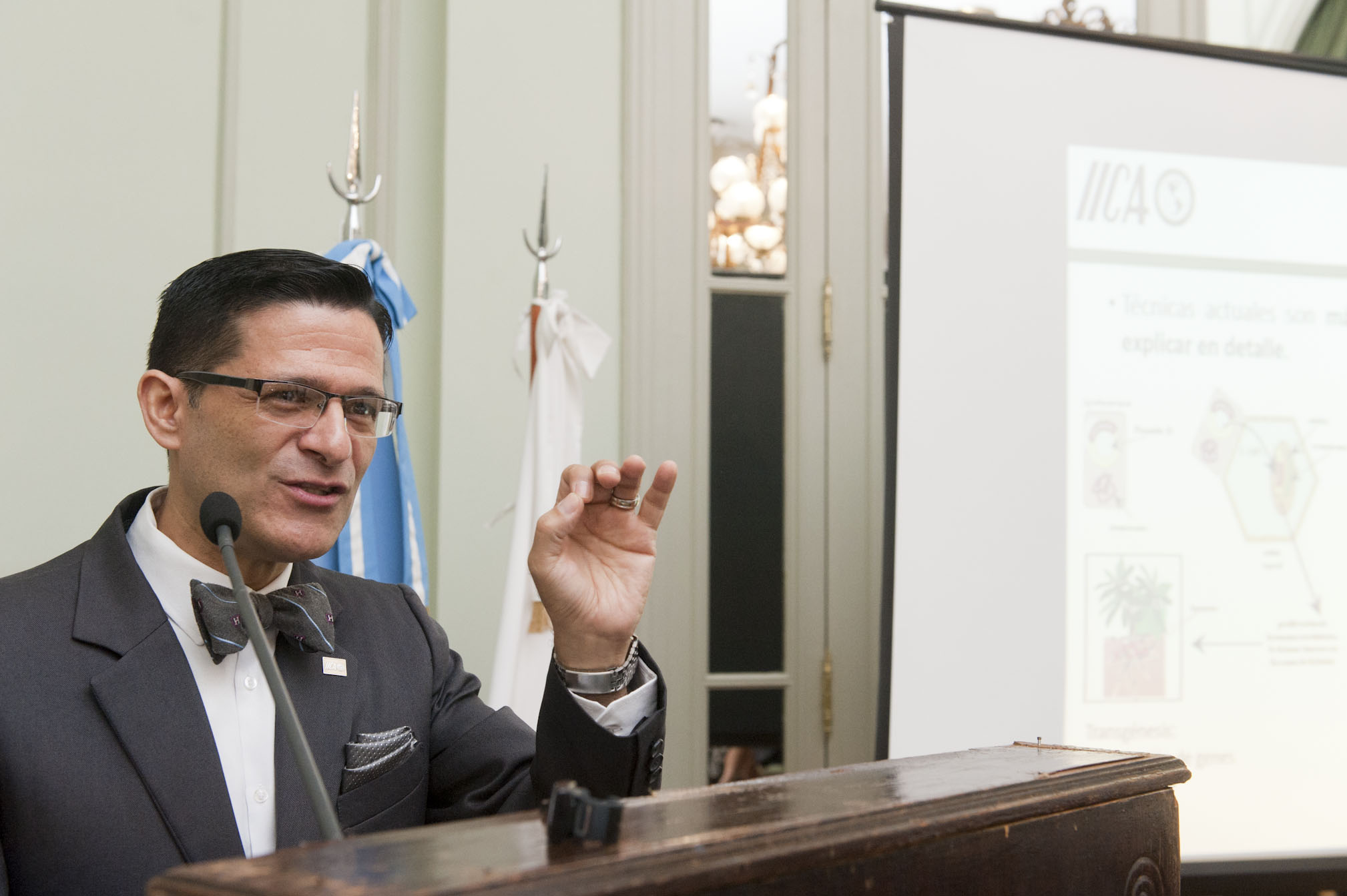International experts and government officials from Argentina noted that gene editing is revolutionizing the biological sciences and affords valuable opportunities. They also agreed on the importance of communicating this progress in an efficient manner, in order to achieve a social consensus that would enable countries to enjoy and benefit from these developments.

Buenos Aires, Argentina, 21 March 2019 (IICA). Effective and efficient communication is necessary in order to ensure that societies are able to take full advantage of scientific and technological progress in the field of genetics through its application in vegetable and animal production; this can only be achieved by adequately informing consumers of the scope and benefits of these breakthroughs. This was one of the conclusions of international scientific experts and government authorities from Argentina.
The recommendation was issued during the event “Gene Editing: An Opportunity for South-South Cooperation,” organized by the Government Secretariat of Science, Technology and Productive Innovation and the Government Secretariat of Agroindustry of Argentina, together with the Inter-American Institute for Cooperation on Agriculture (IICA). The event was held in Palacio San Martín during the Second High-level UN Conference on South-South Cooperation.
“We hope that these scientific-technological contributions will allow for generating real employment opportunities, especially in very large poverty-stricken areas of Latin America, in order to increase the quality of life,” stated Lino Barañao, Secretary of Science, Technology and Productive Innovation of Argentina, during his opening remarks. The event included the participation of ambassadors, high-level representatives of foreign delegations, local officials, as well as scientific and academic specialists.
During his opening speech, the Director General of IICA, Manuel Otero, highlighted the coordination of technical cooperation agendas with Argentina.
“We are putting together technical cooperation agendas related to the bioeconomy with the secretariats of Science and Technology and of Agroindustry of Argentina; together, we will address key issues such as biotechnology and biosafety. Incorporating technology is crucial in order to transform agriculture in rural territories, which we must begin to view as areas of progress and opportunity,” stated Otero.

In this regard, the Director General of IICA explained that “technical cooperation today lays the foundation for the future.” He expressed his appreciation for the great receptivity demonstrated by the government and agricultural institutions of Argentina, a pioneer in gene editing in Latin America. “IICA will continue to support all of these issues, which are at the forefront of science-based knowledge,” remarked Otero.
The side event was held within the framework of the official meetings of the main global conference on cooperation between developing countries. Its objective was to broaden discussions related to South-South Cooperation and triangular cooperation, as well as to share best practices and experiences.
According to Santiago Del Solar, Chief of Staff of the Secretariat of Agroindustry, “we are responsible for producing more with less. To this end, we have one great ally: technology—or biotechnology—which has proven to be very favorable in Argentina, as exemplified by genetically modified organisms as well as gene editing. This is the road that lies ahead.”
However, Del Solar cautioned that it was necessary to conduct a self-assessment “with respect to communication, which is very important, but did not work in the case of GMOs. We were unable to explain the benefits of GMOs to consumers, so we must be cautious when it comes to gene editing. In the case of both technologies, we must prioritize efficient communication.”
During the event, María Eugenia Segretin, of the National Scientific and Technical Research Council of the University of Buenos Aires (UBA), described the opportunities that gene editing affords to vegetable and animal producers. On the other hand, Agustina Whelan, head of the Biosafety and Biotechnology technical team of the Secretariat of Agroindustry, described the regulatory aspects associated with gene editing tools in Argentina, which has more than 25 years of experience in GMO assessments.

Alejandro Mentaberry, Coordinator of the Scientific-Technological Office of the Government Secretariat of Science, Technology and Productive Innovation of Argentina, stated that “gene editing is leading a revolution in the biological sciences.” He also described the initiatives that the secretariat was carrying out to disseminate the progress achieved, and highlighted the need to conduct efficient work with respect to communication, in order to reach a social consensus that would enable countries to enjoy and benefit from these developments.
Elizabeth Hodson, Professor Emeritus of the School of Sciences of Pontificia Universidad Javeriana in Colombia, also underscored this need. “Acceptance of technological advances depends on our society. Therefore, we must communicate, inform and provide training for trainers, educators and communicators, providing constant updates; we must do so for authorities too, because it’s impossible to regulate what you are unaware of. The adoption of technologies represents a social contract. No progress will be achieved if society rejects new technologies,” she concluded.
Pedro Rocha, IICA Specialist in Biotechnology, delivered a presentation on regulations for precision biotechnology, and highlighted the participation of representatives of State institutions, embassies and IICA—which facilitated discussions on this topic—in the event.
More information:
Institutional Communication Division
comunicación.institucional@iica.int











